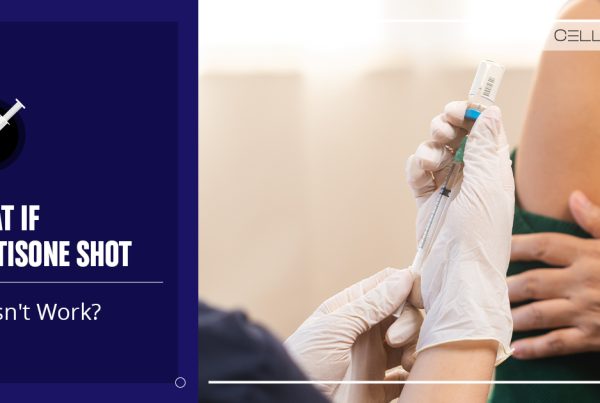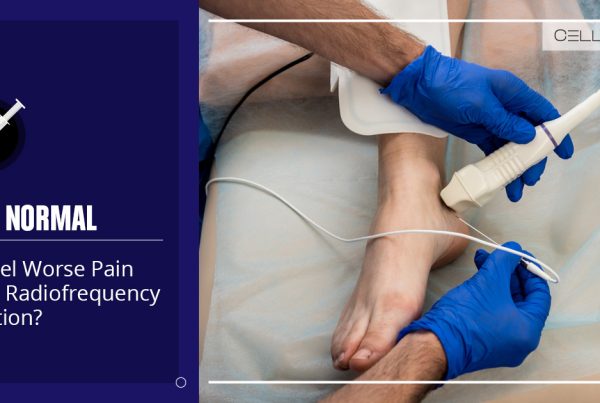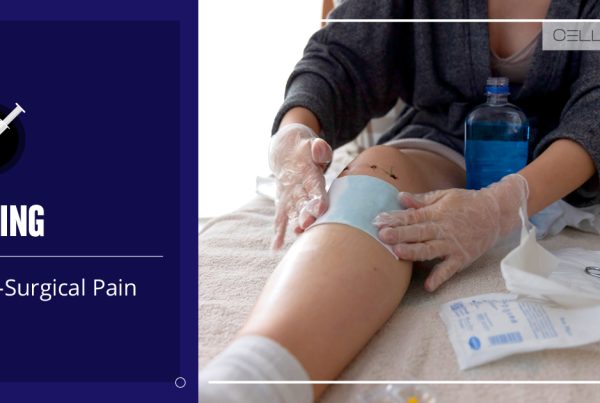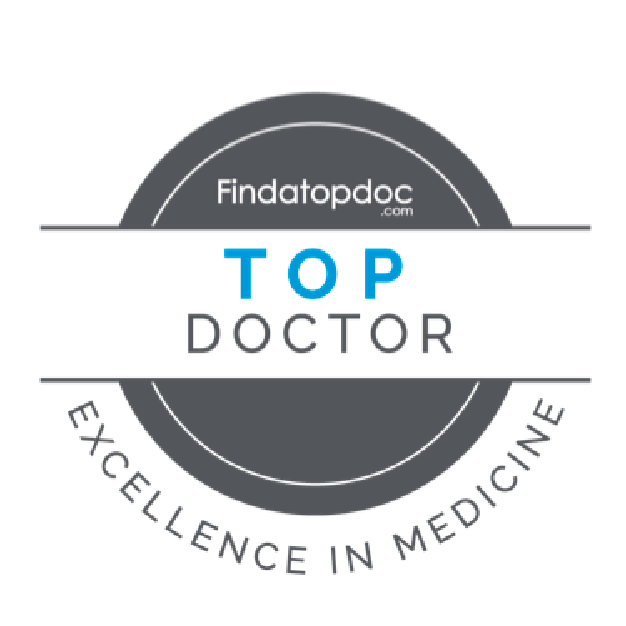Published on: May 11, 2020 | Updated on: August 29, 2024
You have probably heard of stem cells, and even Mesenchymal Stem Cell therapy, but you probably don’t know how mesenchymal stem cells are safely derived or how they can be used to manage chronic pain. You can find more information about Mesenchymal Stem Cell therapy here.
In this article, we will examine which supplements may support the body’s natural processes of producing and maintaining mesenchymal stem cells.
What are Mesenchymal Stem Cells?
Before we begin to understand stem cell supplements, we must first understand what stem cells are and how they can help our bodies.
It is estimated that the human body is composed of 30 trillion cells, each one coded with DNA to carry out a specialized function. Blood, bones, fat, and every organ in your body is composed of cells. The astonishing thing about mesenchymal stem cells (MSCs) is their ability to remain undifferentiated for a prolonged period of time. An undifferentiated stem cell can be thought of as a “blank cell”- all the necessary components of a healthy cell are present, but the stem cell has not yet been defined to a specific function in the body.
It is this incredible property of stem cells that medical researchers are using to find amazing applications in regenerative medicine and managing chronic pain.
How are Stem Cells collected?
There are two types of stem cells which have been identified; embryonic stem cells and adult mature stem cells.
Adult mature stem cells, called mesenchymal stem cells, are collected from specific tissue sites such as bone marrow or adipose (fat). The mesenchymal stem cells are identified and then separated. The localization of adult mature stem cells amidst all the other body tissue cells can be difficult, but adult mature stem cells are actually easier to obtain and carry little ethical objections since the tissue is donated by a consenting adult.
Mesenchymal stem cells are collected from the donor via needle. In the case of marrow collection this may involve anesthesia. Adipose tissue is more straightforward and usually only takes about one hour.
Once physicians gather all they can, the stem cells are processed for the needs of the recipient and are injected into the desired area. .
Stem Cells in Regenerative Medicine
Regenerative medicine has grown by leaps and bounds in recent years. Regenerative medicine focuses on optimizing or repairing damaged tissue with human mesenchymal stem cells collected from a donor or from the recipient themselves. This type of therapy shows promising results in many applications including:
- Organ damage or degeneration
- Musculoskeletal damage or degeneration
- Congenital abnormalities
- Age related wear
- Chronic illness
- Cardiovascular disease
- Certain types of cancer
Stem Cell Therapy is a form of regenerative medicine, as well as Platelet Rich Plasma.
It is important to note that in the case of a recipient donor, where the patient has their own cells collected for treatment, the chance of tissue rejection is extremely low.
What conditions may benefit from Stem Cell Therapy?
There are many conditions that are currently being studied in trials that can benefit from Stem Cell Therapy including*:
- Arthritis
- Osteoarthritis
- Generalized joint pain
- Soft tissue damage or dysfunction
- Skeletal damage or dysfunction
- Spinal cord injuries
- Type 1 Diabetes
- Parkinson’s disease
- Alzheimer’s disease
- Cardiovascular disease
- Blood vessel damage or dysfunction
- Stroke
- Burn
- Certain types of cancers
*Most of these conditions are not being treated in the clinical settings and are in the research phase.
What Supplements Support Stem Cell Health?
There are a number of supplements that may promote Mesenchymal Stem Cell productivity in the human body. While there are no scientific studies which test the supplements’ effect on MSC numbers in patients, there are studies that show certain supplements support and stimulate the formation of the tissues of the body, including Mesenchymal Stem Cells.
These supplements boost body tissue cells by improving their effectiveness and creating positive environments where they can flourish and remain healthier for longer. MSCs that are more effective have greater health benefits on the body, which is why supplements may show positive results.
How are Supplements made?
How supplements are made depend on the company making them. Generally, formulas are derived from clinical trials that evaluate nutrients for their ability to promote stem cell health. The number of trials and research into this matter is limited and therefore companies can conduct their own research to identify effective ingredients. As a consumer, it is important to make sure these companies are forthcoming about their research.
Examples of two nutrients that were found effective in aiding stem cells production include:
1. Glucosamine/Chondroitin
These two supplements are commonly used in arthritis treatments and are often derived from shellfish. Glucosamine promotes mesenchymal stem cells to become cartilage and also inhibit cartilage deterioration. Chondroitin can also enhance the ability of MSCs to turn into cartilage. Chondroitin also has real measurable effects on knee cartilage in actual patients, while glucosamine also seemed to help cartilage quality when measured on a specialized MRI.
This study concludes that Glucosamine does in fact promote mesenchymal stem cell longevity in a laboratory setting, which has positive indications for human clinical trials.
2. Curcumin/Turmeric
Turmeric is known for being the common spice from Indian cooking, and is the most commonly promoted anti-inflammatory nutraceutical (natural medicinal nutrient) right now. Curcumin is one of several chemical compounds found in turmeric, known as curcuminoids, which are believed to be biologically active.
In one study showed positive effects of turmeric compounds on patients suffering from Alzheimer’s disease. Curcumin can also positively impact arthritis due to its anti-inflammatory properties.
This study shows how curcumin protects adipose derived mesenchymal stem cells from oxidative cell death, potentially promoting longevity of MSCs in the human body.
The list of nutrients in a supplement can vary depending on the brand. It is highly recommended to identify the ingredients for potential allergy issues and to verify its general safety. Not all supplement brands are made equal and not all brands are reputable.
How do they work?
Again, there are no active clinical trials proving that these supplements affect mesenchymal stem cell count or productivity. However the positive inclinations from the few scientific laboratory studies can give us hope.
The theory relies on the supplements improving bodily conditions and functioning. Rather than a direct injection of collected stem cells, the supplements contain boosting nutrients which aid in the body’s natural production of MSCs, with the aim to increase stem cell production, longevity and efficacy in the patient.
Because stem cells are responsible for physical repair, improved functioning may lead to quicker overall recovery time and fewer long-term side effects as a result of the initial injury. Supplements may provide faster recovery times from injuries or illnesses by encouraging stem cell growth, along with the addition of proven properties such as anti-inflammation.
Those who suffer from chronic illnesses or from major bodily injuries may expect faster recovery times or a decrease in flare ups. These supplements also bring essential anti-aging, health and beauty benefits by providing necessary elements to the body to improve cellular regeneration, organ rejuvenation and tissue healing.
While certain major injuries can cause permanent damage or decreased function depending on injury location, mesenchymal stem cells, bolstered by a good nutritional environment, may result in near-perfect healing of the wounded area.
Summary
Cellaxys remains committed to the education and delivery of cutting edge medical treatments, including stem cell supplements. Each patient treatment plan is custom tailored to suit their needs, based on injury and desired results.
References:
- https://onlinelibrary.wiley.com/doi/epdf/10.1002/jor.1100090504
- https://www.nature.com/articles/srep16570
- https://www.hindawi.com/journals/sci/2012/812693/
- https://patents.google.com/patent/US5486359A/en
- https://www.liebertpub.com/doi/abs/10.1089/ten.2004.10.1518
- https://stemcellsjournals.onlinelibrary.wiley.com/doi/full/10.5966/sctm.2015-0148
- https://sites.psu.edu/vegliastemcellresearch/2016/09/21/how-are-stem-cells-different-from-norm
- al-body-cells/
- https://sites.psu.edu/vegliastemcellresearch/2016/09/26/embryonic-stem-cell-research-versus-adult-stem-cell-research/
- https://www.healthline.com/health/number-of-cells-in-body
- https://www.ahajournals.org/doi/full/10.1161/01.CIR.0000057525.13182.24
- https://www.futuremedicine.com/doi/full/10.2217/17460751.3.1.1
- https://www.ncbi.nlm.nih.gov/pmc/articles/PMC4664309/
- https://www.sciencedirect.com/science/article/pii/S1063458407000398
- https://www.nejm.org/doi/full/10.1056/NEJMoa052771
- https://www.jstor.org/stable/24107978?seq=1
- https://www.ncbi.nlm.nih.gov/pmc/articles/PMC2781139/
- https://www.sciencedirect.com/science/article/pii/S1347861316301360
Sources
Footnotes
- Strauer BE, Kornowski R. Stem cell therapy in perspective. Circulation. 2003;107(7):929-34.
- Mason C, Dunnill P. A brief definition of regenerative medicine. Regenerative Medicine Vol. 3, No. 1. 2007.
- Mao AS, Mooney DJ. Regenerative medicine: Current therapies and future directions. Proceedings of the National Academy of Sciences. 2015;112(47):14452-9.
- Clegg DO, Reda DJ, Harris CL, Klein MA, O’Dell JR, Hooper MM, Bradley JD, Bingham III CO, Weisman MH, Jackson CG, Lane NE. Glucosamine, chondroitin sulfate, and the two in combination for painful knee osteoarthritis. New England Journal of Medicine. 2006;354(8):795-808.
- Derfoul A, Miyoshi AD, Freeman DE, Tuan RS. Glucosamine promotes chondrogenic phenotype in both chondrocytes and mesenchymal stem cells and inhibits MMP-13 expression and matrix degradation. Osteoarthritis and Cartilage. 2007;15(6):646-55.
- Chattopadhyay I, Biswas K, Bandyopadhyay U, Banerjee RK. Turmeric and curcumin: Biological actions and medicinal applications. Current science. 2004:44-53.
- Mishra S, Palanivelu K. The effect of curcumin (turmeric) on Alzheimer’s disease: An overview. Annals of Indian Academy of Neurology. 2008;11(1):13-9.
- Wang N, Wang F, Gao Y, Yin P, Pan C, Liu W, Zhou Z, Wang J. Curcumin protects human adipose-derived mesenchymal stem cells against oxidative stress-induced inhibition of osteogenesis. Journal of pharmacological sciences. 2016;132(3):192-200.
References
- What Are Stem Cells?. University of Rochester Medical Center. Accessed 9/17/2023.
- How Many Cells Are in the Human Body? Fast Facts. Healthline. Accessed 9/17/2023.
CELLAXYS does not offer Stem Cell Therapy as a cure for any medical condition. No statements or treatments presented by Cellaxys have been evaluated or approved by the Food and Drug Administration (FDA). This site contains no medical advice. All statements and opinions are provided for educational and informational purposes only.
Dr Pouya Mohajer
Author
Pouya Mohajer, M.D. is the Director of Spine and Interventional Medicine for CELLAXYS: Age, Regenerative, and Interventional Medicine Centers. He has over 20 years of experience in pain management, perioperative medicine, and anesthesiology. Dr. Mohajer founded and is the Medical Director of Southern Nevada Pain Specialists and PRIMMED Clinics. He has dedicated his career to surgical innovation and scientific advancement. More about the doctor on this page.
Dr Pejman Bady
Contributor
Dr. Pejman Bady began his career over 20 years ago in Family/Emergency Medicine, working in fast-paced emergency departments in Nevada and Kansas. He has served the people of Las Vegas as a physician for over two decades. Throughout this time, he has been met with much acclaim and is now the head of Emergency Medical Services in Nye County, Nevada. More about the doctor on this page.









